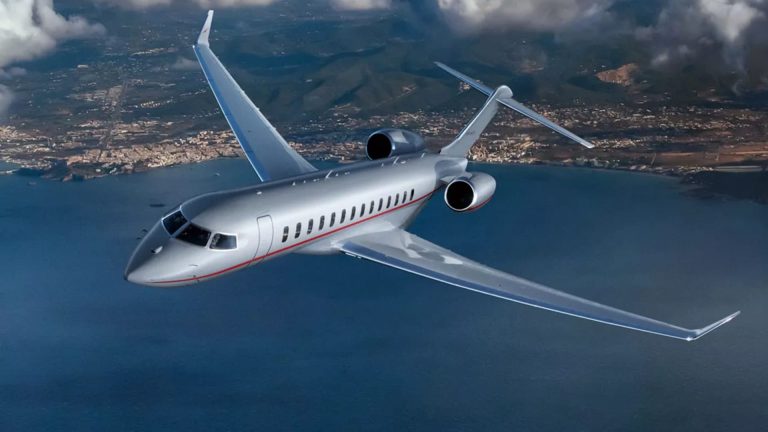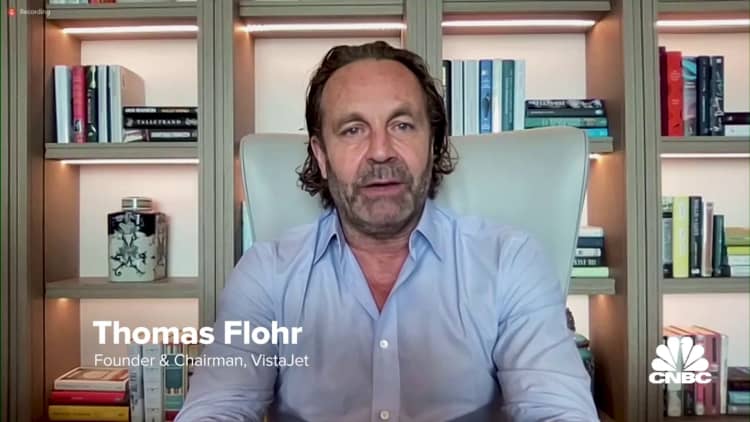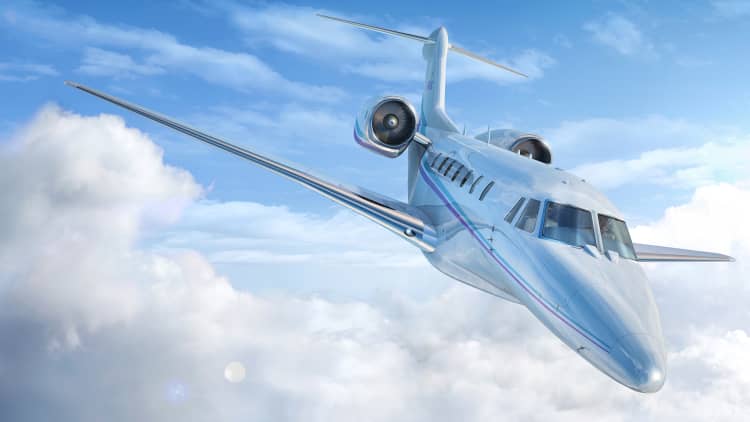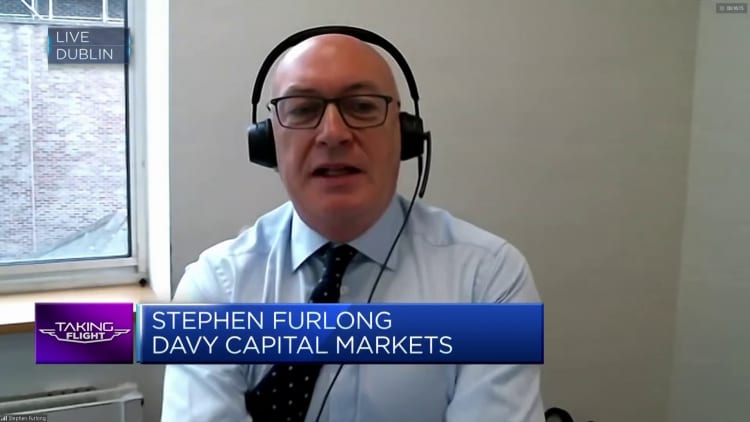
[ad_1]

VistaJet CEO Thomas Flohr defended his company’s financial standing following reports that the fast-growing private charter jet company is facing liquidity and debt trouble.
Speaking to CNBC’s Dan Murphy, the Swiss entrepreneur-turned-aviation-disrupter denied that VistaJet’s high debt levels were spooking investors.
“Look, none of this is new. All documents and data was always available to our equity and debt holders,” Flohr said.
VistaJet offers a charter service that it says eliminates the expense and burden of owning a private jet, instead using a subscription model that bills by flight hours and provides private travel to and from airports around the world in as little as 24 hours’ notice.
A report published this week by the Financial Times said that VistaJet’s net losses totaled $436 million over the past four years, and its debt “more than doubled last year to $4.4 billion” as the company’s fleet grew to 360 jets, a 50% expansion after its acquisitions of charter firms Air Hamburg and U.S.-based JetEdge. The FT cited company disclosures to investors and bond holders.
Auditing firm EY warn in a report on the company’s 2022 accounts that “a material uncertainty exists that may cast significant doubt on the group’s ability to continue as a going concern,” the article said.
Flohr denied that these points meant any risk to the company, which is headquartered in Malta and flies to 1,900 airports in 96% of the world’s countries, according to its website. He stressed that VistaJet is profitable on an EBITDA basis, which is the company’s main focus.
“We as a company, both shareholders and bondholders, [are] only focused on EBITDA, the cash creation of the company,” Flohr said. “The adjusted EBITDA was over $800 million in 2022. We never focused below the EBITDA line.”

EBITDA stands for earnings before interest, taxes, depreciation and amortization, and is a way of measuring a company’s income before a slew of deductions. If a company’s investors see a good growth rate in its EBITDA, they may use that indicator to assess future growth and return-on-investment potential.
EBITDA is not an actual indication of cash flow, because the final figure after interest, taxes, depreciation and amortization is generally substantially different. Berkshire Hathaway leaders Warren Buffett and Charlie Munger famously deride the accounting metric.
Flohr also explained his company’s depreciation timeline, which is when the cost of an asset purchase — like a jet — is gradually written off over the course of its operating lifetime.
“The company has a very conservative depreciation policy, where over 13 years we depreciate our aircraft to zero. That’s as a private company the choice we’re making as this conservative policy in place, but we might change it going forward.” Thirteen years is a relatively shorter timeline of jet use compared to the industry average, which is between 15 and 25 years.
“If we just mark-to-market our airplane, the company would be highly profitable,” the CEO added, referencing an accounting strategy that provides the current market value of company assets. Mark-to-market would calculate the jets’ values by comparing their cost to how much they are worth in current market conditions, rather than once they depreciate fully.
An airplane in VistaJet’s fleet.
Courtesy of VistaJet
Flohr said that he may consider using mark-to-market accounting this year rather than what he describes as “a very, very conservative 13 years to zero” depreciation policy, which he says would then mean the company is turning a profit. He stressed that the company has a clear EBITDA growth path.
“Going forward, this infrastructure really allows us to grow the company from approximately $800 million EBITDA to $1.5 billion EBITDA,” he said.
The FT report also notes that VistaJet had $831 million worth of prepaid flights on its books at the end of 2022, but only $134 million left in actual cash.
Flohr emphasized that this did not warrant concern, explaining that the company only needs roughly 22% of clients’ up-front payments to fly the jets they book.
“It’s not a problem at all. It’s a snapshot of December 31. Think about when clients pay us money up front — we need only about 20 to 22% of that number to serve our clients for the direct operating expenses of those flights,” he said.
He stressed that those deposits are non-refundable and is not money that clients can withdraw. “We have a subscription business model. The key of this number is to serve these hours. It costs us about 22% of those numbers to actually fly them.”

“We feel very confident … when we look at the first quarter these net new hours that we’re adding on a yearly basis,” Flohr said, citing 9,000 flight hours added in this year’s first quarter and the “same kind of pace” in the second quarter.
“When you look at absolute debt, you always need to make it relative to the EBITDA that is infrastructure produces, and actually our EBITDA has grown more in relative terms than our debt and hence, the company is extremely comfortable,” he said. “So are the shareholders and so are the bondholders with the capital structure that the company has in place.”
Private jet demand has soared in the years since the Covid-19 pandemic, as travelers and businesses opted for safer flying options and wealth for high net worth individuals has skyrocketed. This combined with supply delays due to global supply chain and staffing difficulties has made the ever more popular sector even more expensive.
[ad_2]
Source link